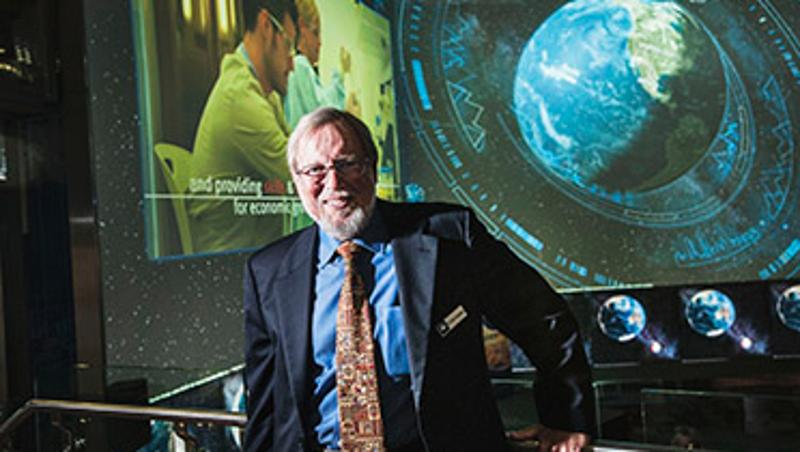
With the 21st Conference of Parties (COP21) kicking off in Paris tomorrow (Australian time), a QUT academic is warning the delegation won’t secure real action on climate change because member countries aren’t coming clean with their environmental data.
World-renowned environmental scientist Professor Tim Foresman from QUT’s Institute for Future Environments said participating nations had failed to use spatial technologies effectively to make evidence-based, informed decisions about the best ways of tackling the world’s growing environmental problems.
“Decision-makers on the whole aren’t interested in sharing their own data with other leaders, let alone sharing it with their constituents through open data initiatives,” said Professor Foresman, QUT’s SIBA Chair in Spatial Information.
“They’re too busy keeping their carbon cards close to their chests in the back room climate-energy poker game – it’s quite disappointing.
“When G20 leaders and delegates in Brisbane visited the Cube Globe last November, they saw firsthand the unprecedented power of spatial technologies as tools for visualising complex location-based data sets so that decision-makers can easily analyse and derive well-informed meaning from them.
“Again in Brisbane this year the world's top spatial experts came together at the Pivotal 2015 International Summit to show international government and business leaders how to harness spatial information to address the globe’s big environmental issues and better manage our finite resources in a sustainable manner.”
Professor Foresman is an expert in his field:
- Was the UN's chief environmental scientist 2000-2003 - oversaw annual Global Environmental Outlook (GEO) reports that rated the conditions of the planet and its resources.
- Led NASA's Digital Earth Initiative 1999-2000 - helped pave the way for Google Earth.
Professor Foresman said climate change would never be adequately addressed as long as governments were allowed to keep key data and information from the public.
He said spatial information was the key to putting the power back in the hands of the public to address the world’s big climate challenges.
“The digital earth visualisation of information enables humans to sit down together and make reasonable decisions about the world we live in. It empowers us as citizens of Spaceship Earth to understand the value of the everyday decisions we make as individuals or as part of our communities,” Professor Foresman said.
“By 2020 it’s estimated that 80 per cent of adults worldwide will own a smartphone – a computer infinitely more powerful than those that sent NASA astronauts to the Moon,” Professor Foresman said.
“That’s a terrific example of a tool that turns citizens into bona fide scientists - gathering, crowdsourcing and sharing their own information.
"If we want to enjoy life as we currently know it and act responsibly by leaving our planet in better shape for our children and their children, we need a game changer that will allow us to preserve and maintain this planet - and that game changer is spatial information for informed communities.
“The tools are in our children’s hands, not the COP21 poker players – if only they’d play fairly for the benefit of everyone.”
Media contact:
Rose Trapnell, QUT Media team leader, 0407 585 901 or media@qut.edu.au


